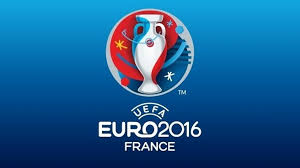By Samindra Kunti in Paris
June 10 – Euro 2016 will be UEFA’s most profitable national team championship to date with the confederation set to bank a 41% increase in revenue to €1.9 billion on the 2012 tournament.
The expanded format – from 16 to 24 teams – may not have been done for commercial reasons (then president Michel Platini was more interested in securing the votes of the smaller nations than bigger TV deals), but the trade up has meant more money. The likely trade-down will be in the quality of some of the football being played.
UEFA banked €1.3 billion from Euro 2012, but the increase to 24 participants allows for 20 more matches, 51 instead of 31, and hence increased commercial opportunities across a wider base of nations.
Of the projected revenue of €1.9 billion, €1 billion will come from TV rights – or €200,000 for every single minute. Sponsorship and merchandising will generate €400 million, while ticketing and hospitality will bring in €500 million.
With the corruption crisis still engulfing football, there had been a slowdown in big companies prepared to pay the big money sponsorships and advertising. However, any predicitions of the death of football sponsor interest are premature. UEFA has ten major sponsors for the Euros, including three new partners in Turkish Airlines, Azerbaijan’s state-owned oil company SOCAR, and Chinese consumer electronics firm Hisense.
The attraction of 24 teams to sponsors (as opposed to 16) is naturally the expanded footprint it gives them, and the increased star power on the field of play.
With matches screened from Fiji to Uruguay and from Kolkata to Los Angeles, the world audience will see appearances of global stars from the club game – Zlatan Ibrahimovic, Gareth Bale, Cristiano Ronaldo and Robert Lewandowski will all play courtesy of the new tournament format, but as lone stars in mediocre teams – Sweden, Wales, Portugal and Poland respectively.
In the past UEFA has also applied its expansionist vision to both the Champions League and the Europa League, its two flagship club competitions. That success was what provided the commercial model for what will be the richest Euro Championships to date.
Contact the writer of this story at moc.l1741534576labto1741534576ofdlr1741534576owedi1741534576sni@i1741534576tnuk.1741534576ardni1741534576mas1741534576

